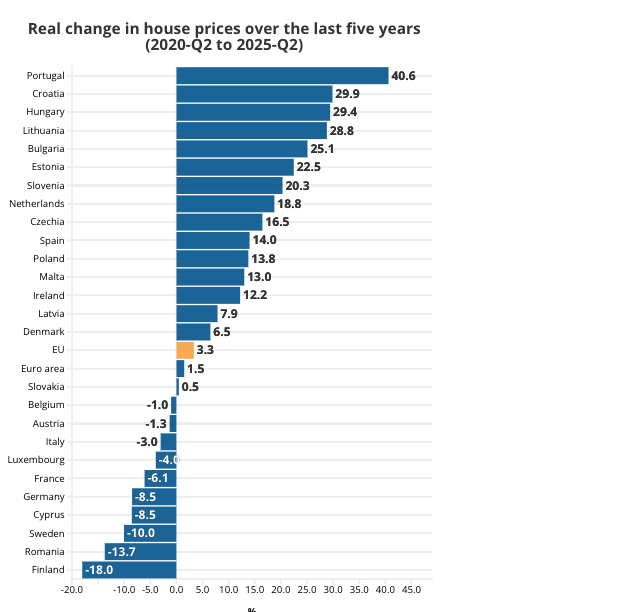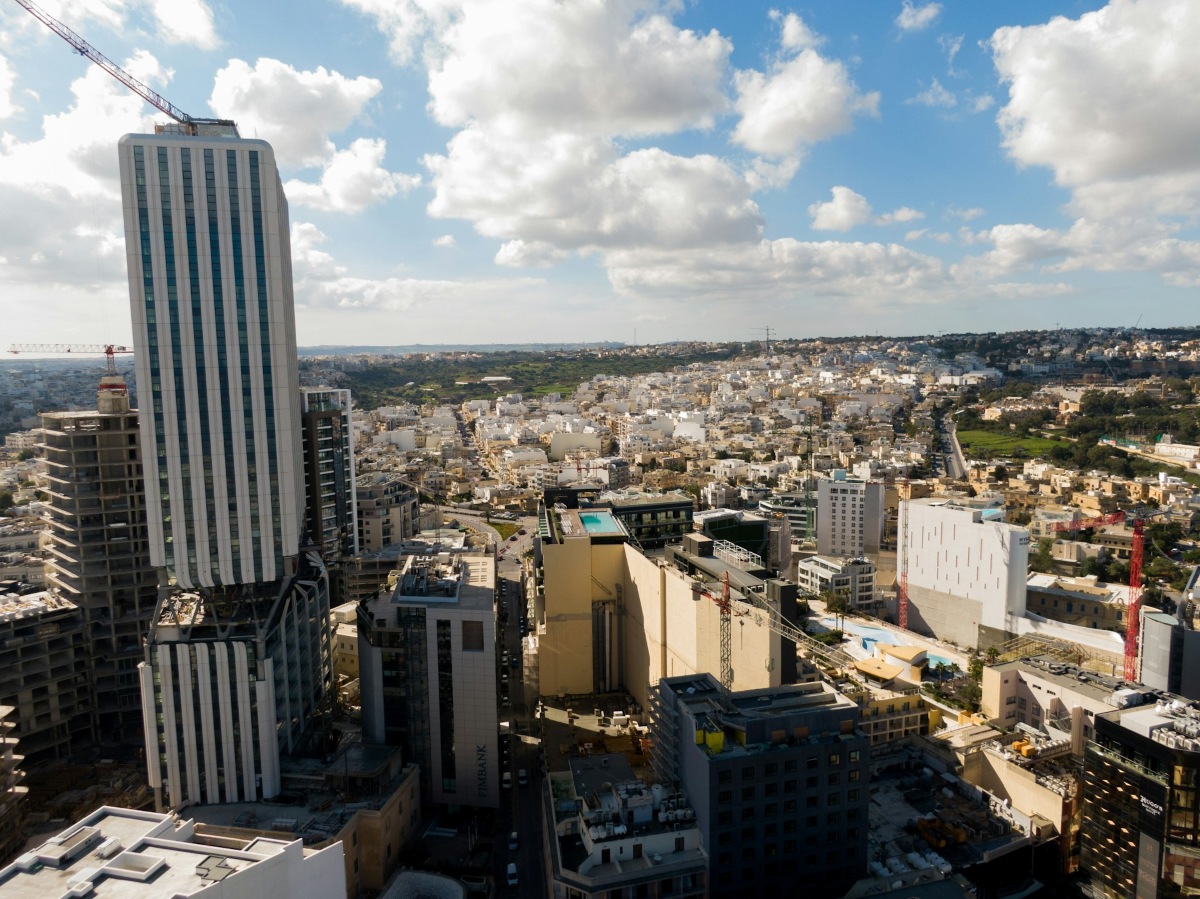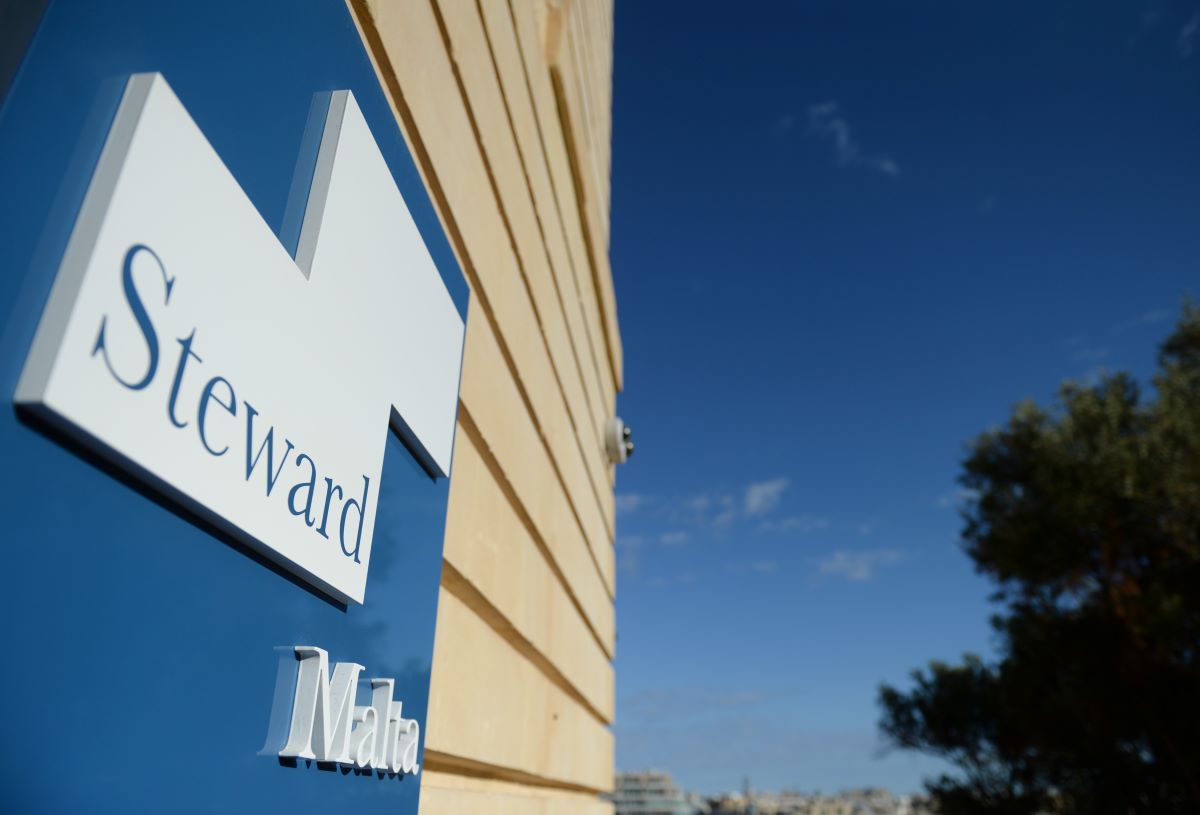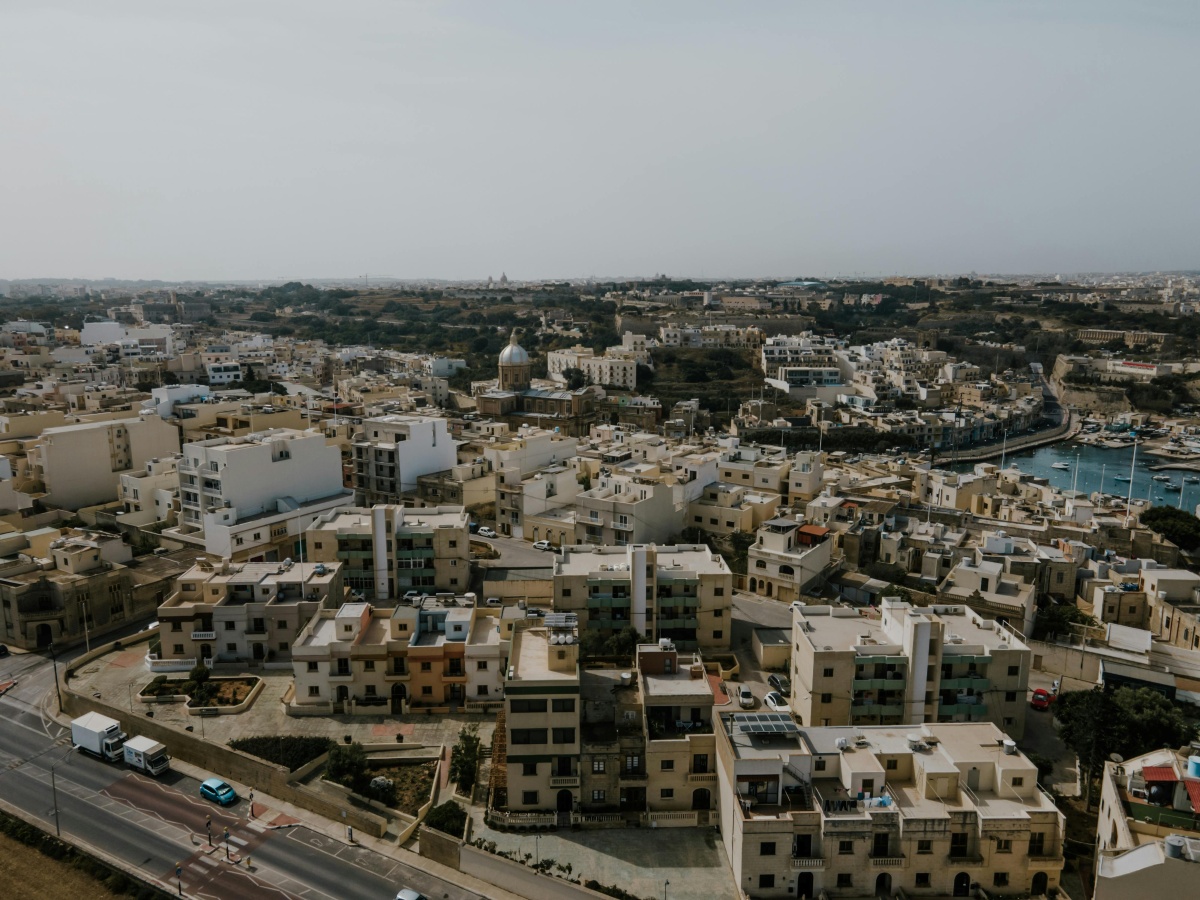While house prices across Europe continue to soar, Malta’s property market has remained on a steadier course – still rising, but at a more moderate pace than many of its EU counterparts.
According to the latest Eurostat data, house prices in the EU rose by an average of 5.4 per cent year-on-year in the second quarter of 2025, marking the seventh consecutive annual increase. Seven countries recorded double-digit gains, led by Portugal (17.1 per cent), Bulgaria (15.5 per cent) and Hungary (15.1 per cent).
Malta, by contrast, saw a more measured rise. The National Statistics Office reported that the Residential Property Price Index (RPPI) increased by 5.6 per cent in early 2025 compared with the same period last year. This marks steady growth, placing Malta above the EU average but well behind the bloc’s fastest-rising markets.
In terms of real housing pricing, Malta’s cumulative property price growth remains striking, coming in at a 13 per cent increase.
This could be fuelled by a combination of factors: population growth, increased foreign investment, and the country’s ongoing pull as a business and lifestyle hub. This is more than triple the real increase in the housing pricing average in the EU, which come in at 3.3 per cent.

Unlike several Northern European markets that are now cooling under the pressure of higher interest rates, strong local demand, limited land availability, and continued construction activity have supported price stability in Malta. Yet, challenges persist. In Malta, there has been a 100 per cent in housing prices between 2014 and 2022 – a great lure for investors and a sign of unaffordability for others.
In an EU context where several countries are experiencing double-digit growth and others are slipping into decline, Malta stands in the middle.
Card payments now drive Malta’s consumer economy as supermarket usage hits 60%
In 2024, card payments accounted for 60% of all supermarket sales, making them the dominant payment method in the industry
Could a 50-year mortgage work in Malta? Experts weigh in on feasibility and risks
Donald Trump’s recent proposal for a 50-year mortgage has stirred controversy, but could this work in Malta?
‘If the Maltese had a connection to their land, it would change absolutely everything’ – Malcolm Borg
'“Generation renewal is one of the biggest problems — not just in the EU, but in the world'






